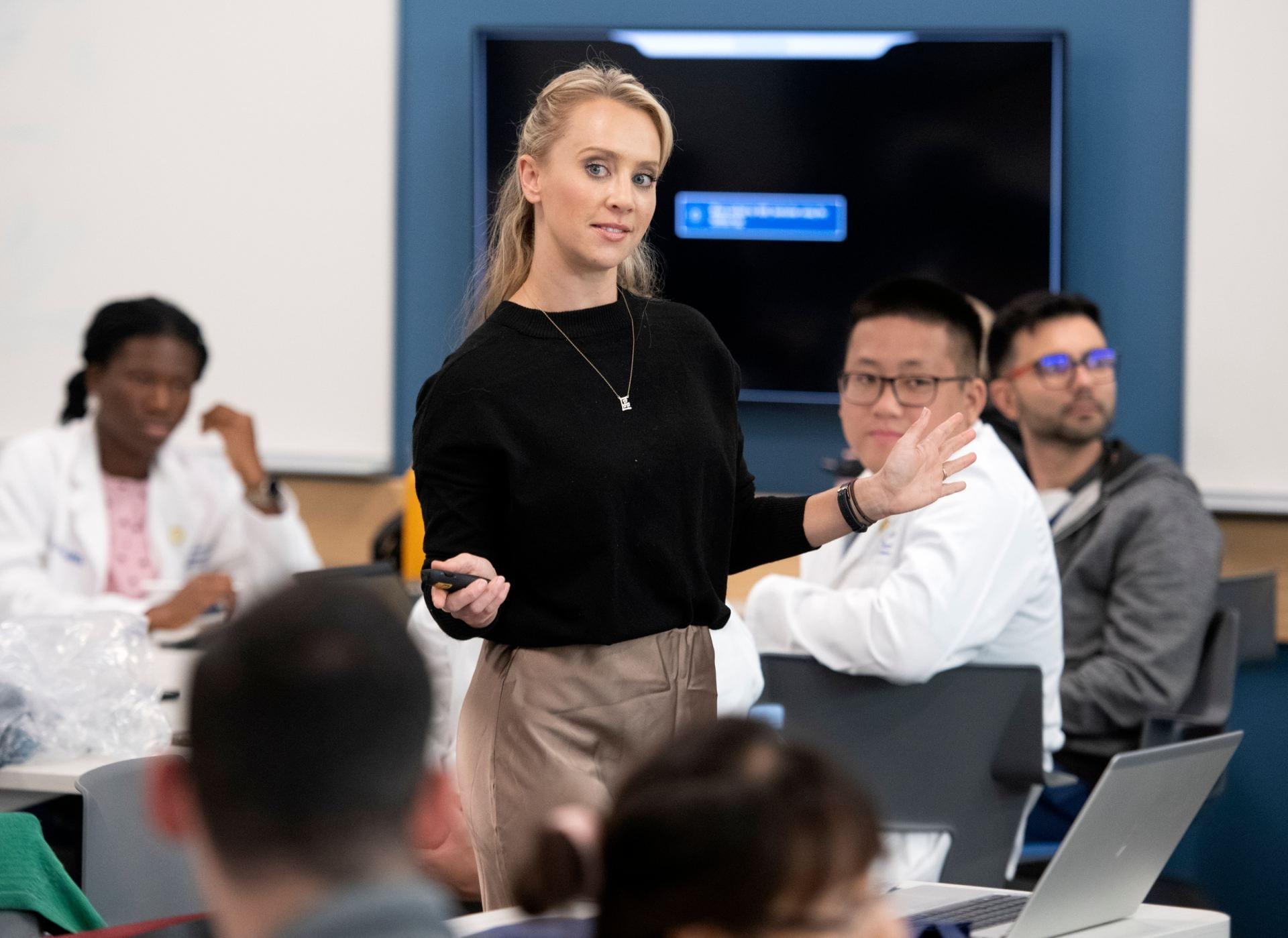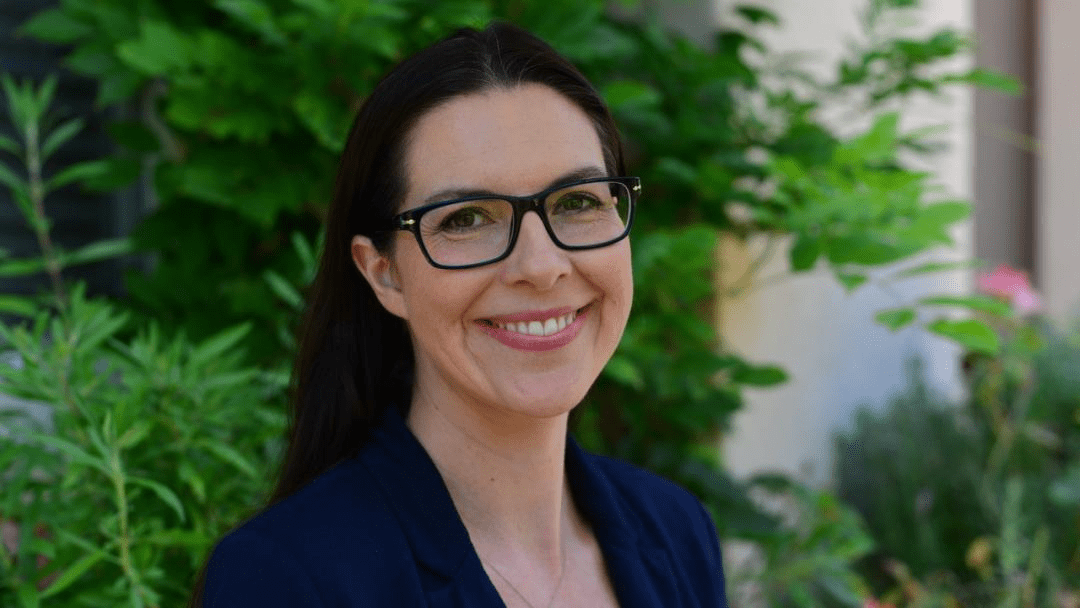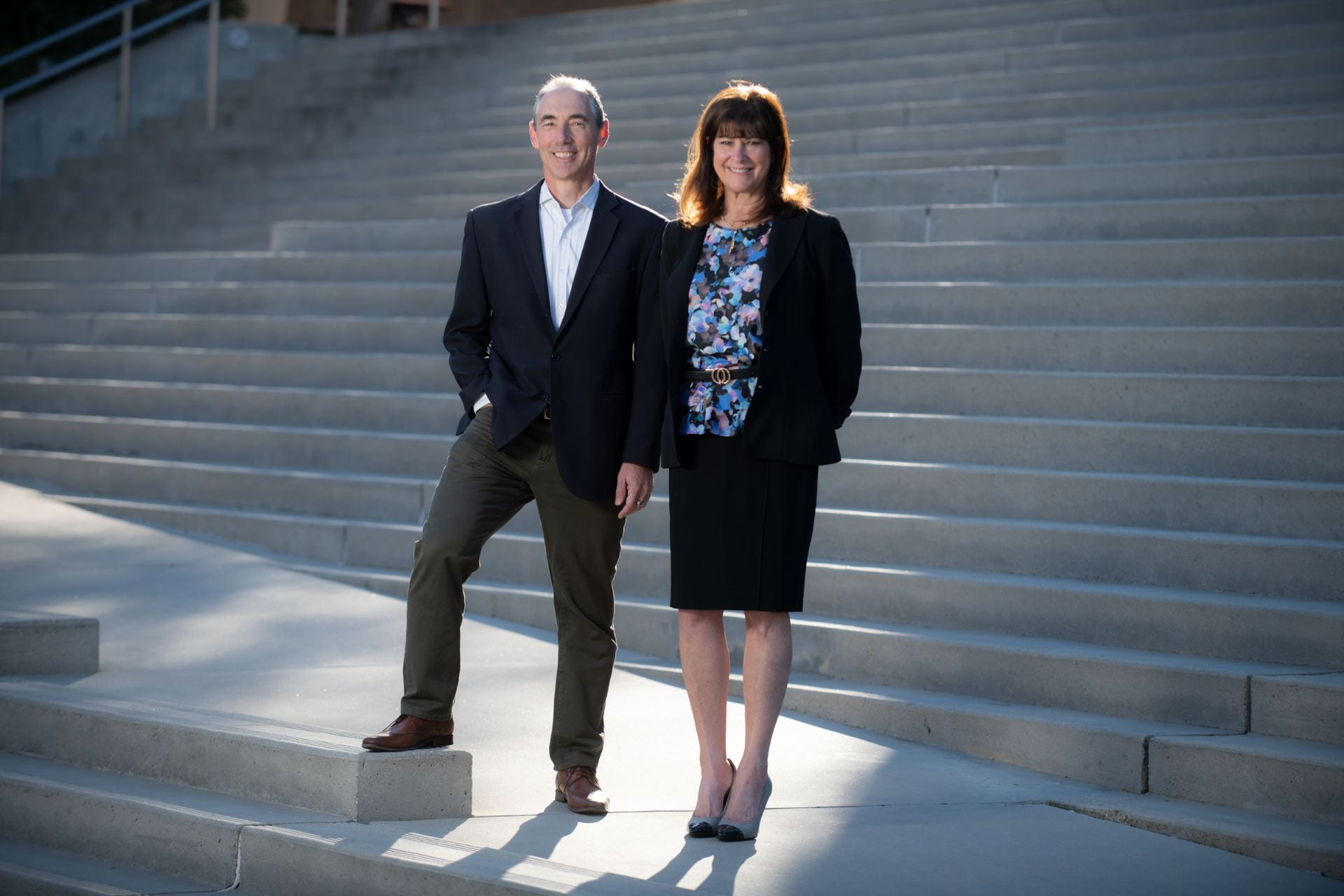The art of collaborative healthcare
Innovative health sciences curriculum prepare students for real-world settings

Throughout the school year, UCI nursing, pharmacy and medical students are brought together in an innovative integrated curriculum of interprofessional education that will prepare them for the communication and collaboration they will find in a real-world healthcare setting.
UCI’s health sciences programs continue to make strides as among the first to integrate this collaborative form of healthcare education as a required curriculum across multiple programs. Why? Because today’s healthcare environment demands it.
Interprofessional collaborative care has become a common practice over the past 10 years, especially in the acute care setting. The model improves patient outcomes and efficiency. Collaborative care is inherently integrated into every healthcare setting where different professionals interact with the same patients, but it hasn’t historically been integrated into such professionals’ pre-licensure education.
That’s changing at UCI. Stephanie Au, D.N.P., an assistant clinical professor in nursing, worked to develop an IPE curriculum that incorporates graduate nursing students, undergraduate nursing students, graduate pharmacy students and medical students. Au’s goal is to bring all three of the professions together to talk about their roles. In doing so, they will develop an understanding of the part they play in the healthcare setting – and also where their peers fit in.
“Healthcare providers expect these new professionals to leave school able to effectively participate in these inter-collaborative clinical teams, but their education has been completely siloed.” Au said. “It was just a very big gap in providing the education, so that they could be successful in clinical practice. There’s an expectation that patients and hospitals have of you, but it’s very minimally introduced and incorporated into pre-license education.”
IPE is highly recommended as an educational focus by licensing boards, such as the California Board of Nursing, which has approved the redesigned IPE curriculum at UCI. To meet the CBN requirements, many schools hold individual optional IPE events throughout the year. Rather than these one-day programs, where students may not have the time to develop a level of comfort with team dynamics and interprofessional communication, Au wanted to create a course that tracked through a year-long curriculum.
Au launched the course in the 2021-22 school year, and it proved to be so successful, shas brought it back for a second year of operation. In the inaugural course, the program matched first-year pre-nursing licensure students with first year pharmacy students. Together, the pairs examined case studies tailored with nursing and pharmacy interprofessional interactions and completed high-fidelity simulations created by Au. The simulations provided them with a non-graded environment to practice their respective professional skills, work on collaboration and debunk preconceptions about other professions.
Misunderstanding of roles has been identified in research as one of the largest barriers in attaining effective teamwork in healthcare. Au wants her students to succeed in these aspects, and she works collaboratively with faculty from the School of Medicine and the School of Pharmacy & Pharmaceutical Sciences to develop the IPE curriculum.
“When you come out of school, and it’s a siloed approach, you know your role very well. But those students can be very inaccurate on what they believe other roles do, should do and how they participate,” Au said.
Au graduated with her bachelor’s in in 2010 and a master’s as a Family Nurse Practitioner in 2014 from Cal State Long Beach. She worked first as a pediatric ICU and then as a family nurse practitioner for underserved populations in Los Angeles to get a solid foundation in health inequities. She taught as a clinical instructor and lecturer at UCLA until she was offered a faculty position at UCI, which she excitedly accepted. Au recently graduated in August with a Doctorate in Nursing Practice from the University of Pennsylvania, which she achieved while lecturing full time here.
Along with fostering an understanding across all medical-related professions of what everyone else’s role on a caretaking team looks like, Au has another aim to expand the definition of what a nurse can be.
“As a society we have this idea of what a nurse is, and the bedside nurse is one of the very common roles that a nurse plays, but it’s so much bigger than that.” Au said.
She sees IPE as vital to preparing the nurses, doctors, pharmacists and all healthcare professionals of the future, and she is looking forward to continuing the curriculum with UCI’s many resources and support of UCI.
If you want to learn more about supporting this or other activities at UCI, please visit the Brilliant Future website at https://brilliantfuture.uci.edu. Publicly launched on October 4, 2019, the Brilliant Future campaign aims to raise awareness and support for UCI. By engaging 75,000 alumni and garnering $2 billion in philanthropic investment, UCI seeks to reach new heights of excellence in student success, health and wellness, research and more. The Sue & Bill Gross School of Nursing plays a vital role in the success of the campaign. Learn more by visiting https://brilliantfuture.uci.edu/sue-and-bill-gross-school-of-nursing.


